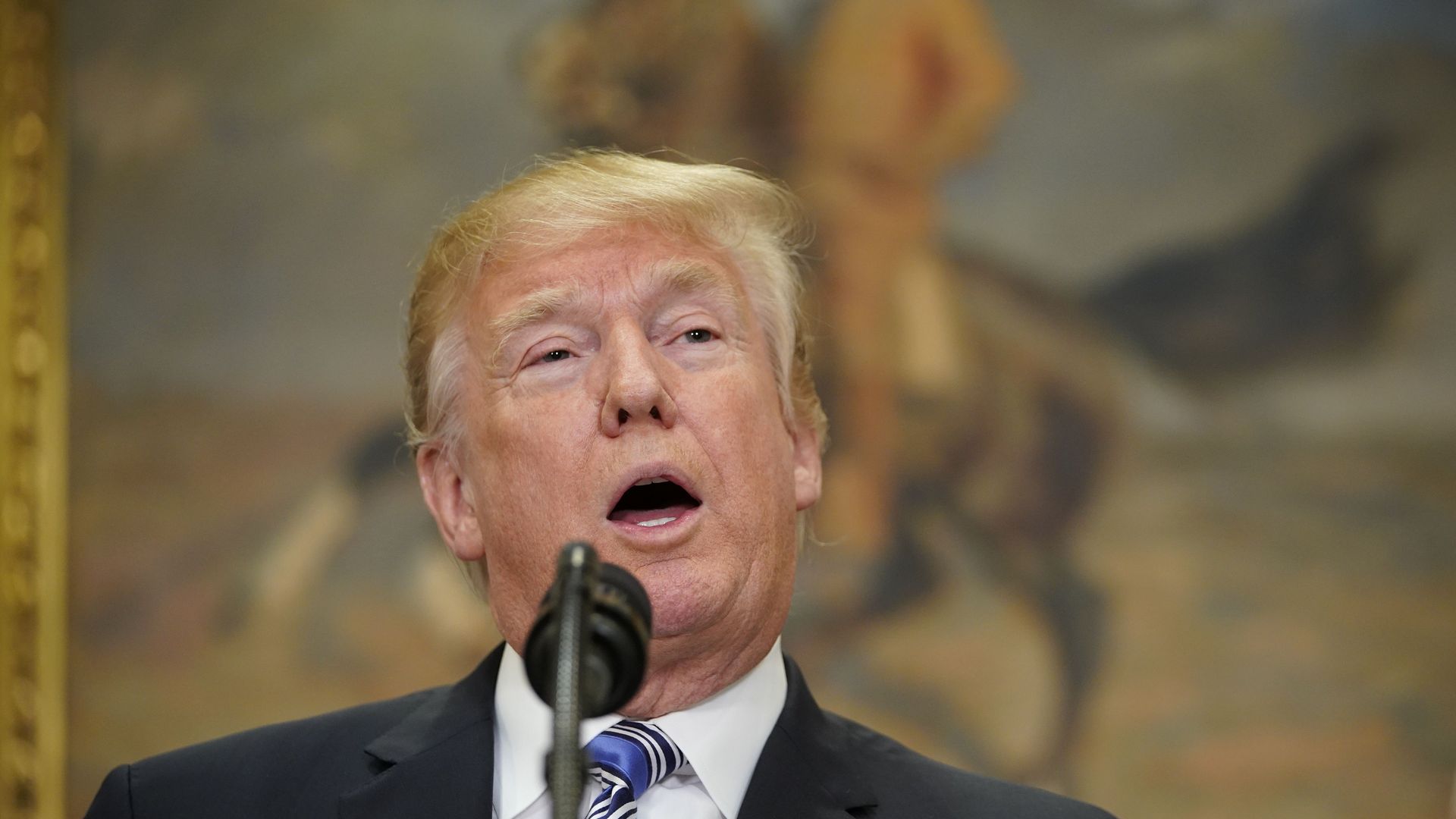The biggest hurdle to a North Korean nuclear deal: American politics
Add Axios as your preferred source to
see more of our stories on Google.

President Trump in the Oval Office. Photo: Mandel Ngan / AFP / Getty Images
News that President Donald Trump will sit down with North Korean leader Kim Jong-un in the next three months is a stunning development. There is considerable risk associated with this dramatic gambit. Contrary to the normal diplomatic playbook, which calls for leaders to meet after experts have worked through complex details, this meeting will in essence kickstart negotiations.
What's next: If Kim is willing to bargain away his nuclear and missile capabilities — a big if — the biggest hurdle to an agreement will be less what North Koreans demand than what American politics allows.
The United States should require North Korea to dismantle its nuclear weapons program, rejoin the Nonproliferation Treaty and agree to the Additional Protocol (which allows for more intrusive inspections), cease the long-range missile development that threatens the U.S. mainland and stop its cyber attacks on U.S. entities. Japan will demand a full accounting of its citizens who were kidnapped during the Cold War.
North Korea will likely seek a peace treaty formally ending the Korean War, the resumption of normal diplomatic relations, a scaling back of the U.S. military presence on the Korean Peninsula and a public pledge that Washington does not seek regime change. It will demand an end to international sanctions and could seek a major commitment of economic assistance.
What rights would Pyongyang retain to develop civilian nuclear energy and export conventional military hardware? This question recalls ground the Obama administration plowed with Iran, despite a lack of trust on both sides. And what about North Korea's abysmal human rights record? That has not been a priority for Trump, but claims of “appeasement” have a potent history in American politics.
[UNSUPPORTED BLOCK TYPE: axiom]
P.J. Crowley is a former Assistant Secretary of State and author of "Red Line: American Foreign Policy in a Time of Fractured Politics and Failing States."
